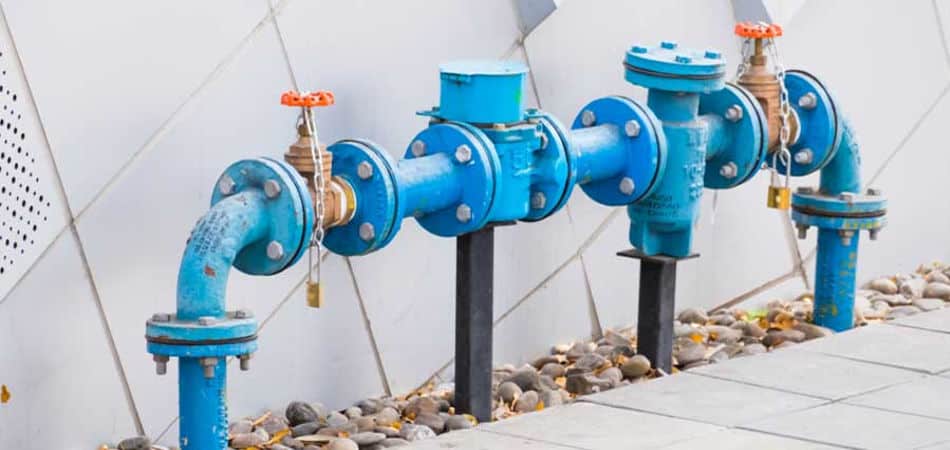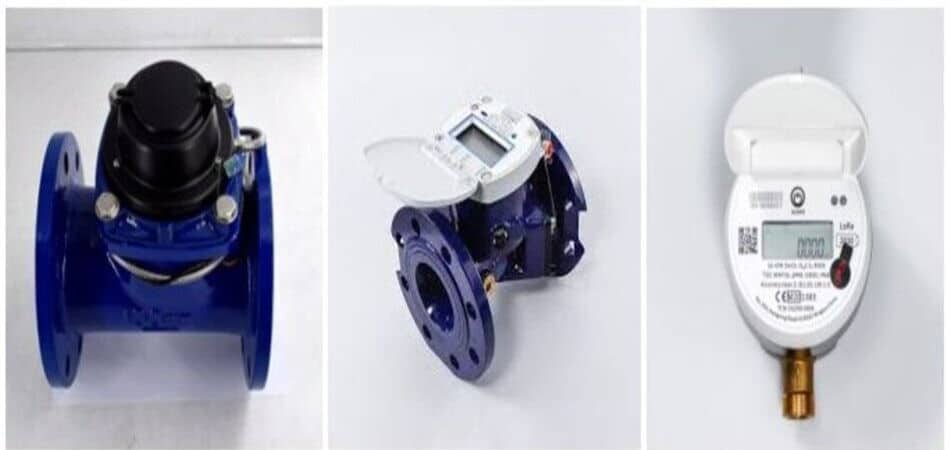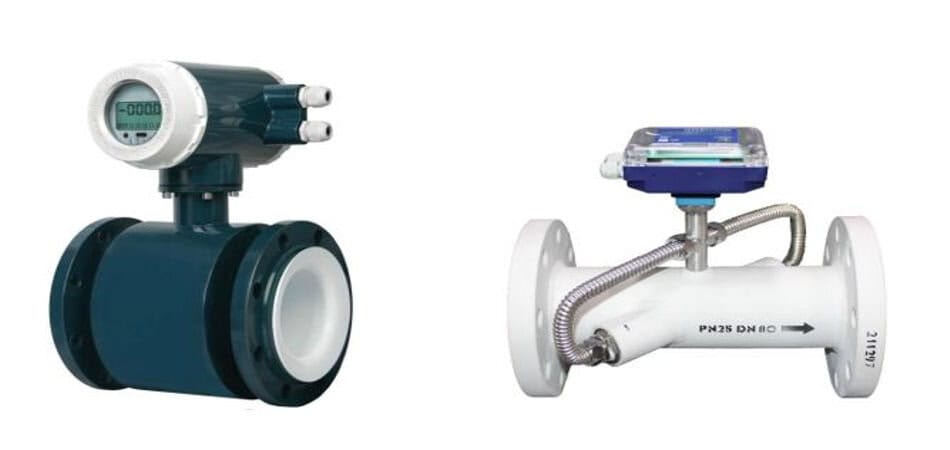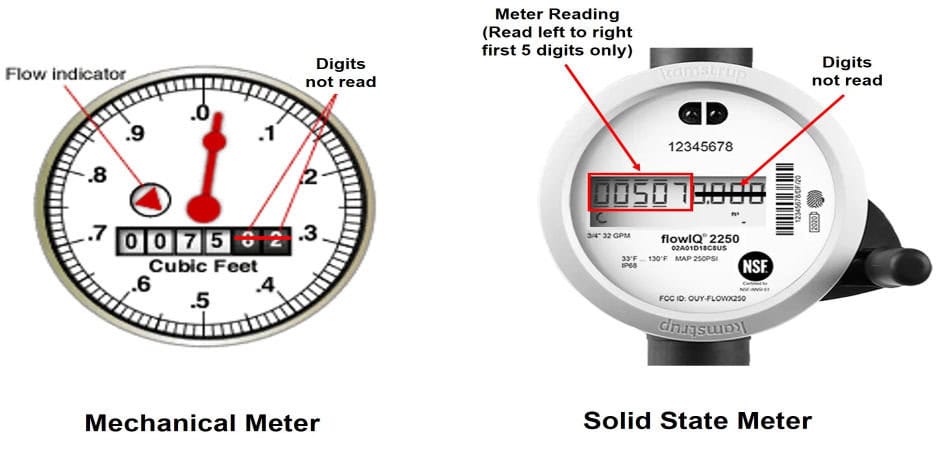Reading this guide will help you understand how water meters work and why they are so important, how to save money by tracking the usage and finding out the leakage at earlier stages. Using this guide, a home- or business-owner will learn how to check personal water usage, a plumber can install meters, and a building manager will know how to manage water more effectively. More than that, here you will find some additional useful tips on using water more effectively and ensuring your water bills are correct.
What is a Water Meter?
A water meter is a device that measures the intake of water that flows into a building. It works the same as gas and electric meters. It records the water you use at home, apartment, or business. This will ensure verification of the correctness of your water bill, detection of leakage, if any, and general economical water use. Usually, the water consumption readings are indicated on the water meter in numerals, readable by either yourself or the water company.

Why are Water Meters important?
- Accurate billing: Ensures you are charged only for what you have used.
- Leak detection: Help to detect a leak and patch it quickly.
- Water saver: Encourage responsible water usage with a display of the amount you consume.
- Resource management: This helps save and utilize water resources properly.
Types of Water Meter
There are the following types of water meters.
- Mechanical water meters:
- Positive displacement meters: Small chambers fill with water, and then the water empties. The meter measures the total water used by counting the number of times the chambers fill and empty.
- Turbine meters: These have a turbine inside that starts spinning when it comes in contact with water. The faster the turbine spins, the more water one uses. The meter measures how much it spins.
- Ultrasonic water meters: The devices measure the velocity of the flowing water by transmitting sound through it. They monitor how the sound waves change through the water for the flow rate. Since they don’t have any parts, they are reliable and have less maintenance.
- Smart water meters: These meters digitally send information regarding your water usage directly to your water provider or an app on your phone. This means you can know how much water you use in real time and easily check from anywhere.

- Electromagnetic water meters: They measure the flow of water with the help of electromagnetic fields. There are no moving parts. Because of the above, it turns out to be quite hardy and precise. They work by detecting how the water flows through a magnetic field.
- Inline water meters: These meters are directly inserted into the water pipe. They register the passage through them as the water flows through, which they measure. They are simple and effective in measuring pipeline water use.

Selecting a Water Meter:
It is important to select a suitable water meter. Before choosing the water meter, you have some knowledge about the following things:
- Measuring the flow of water:
Will you use the water meter for your home, business, and factory, or will you use it on a farm? This helps to decide which meter can be helpful with the proper levels of water flow. Then, you should check the meter’s flometer’seed to ensure it corresponds to the usual usage. It gives you a precise measurement and offers a sustainable life.
- Select the correct type of meter:
Select the type of meter that is right for your needs. Usually, mechanical meters should suffice for most homes and business purposes. Electromagnetic meters are more suited for industrial use, where very high accuracy might be needed. Virgin places with less maintenance is desired could use ultrasonic meters well. In addition, smart meters come in handy when you want to monitor water use and receive detailed data remotely.
- Standard:
Ensure a meter meets requirements and standards set forth by local regulations.
- Good space for installation:
Think about the space where you will install them in terms of metric installation. Make sure the place has enough space and the correct kind of pipes. Look for meters with high accuracy, mainly those being read for billing, and verify the manufacturemanufacturer’sata.
- Reliability of water meter:
Reliability is paramount, so choose a meter built for the types of water it will need to work with: clean drinking water, wastewater, or chemicals.
- Cost:
Consider total cost, including meter purchase and installation and maintenance costs. Sometimes, spending more money on a quality meter at the beginning can save money in the future.
- Customer support and warranty
Lastly, choose a meter from a reputable manufacturer that provides after-sales service and a warranty. That way, you can get help when you will require it.
Working principle of Water Meter:
The working principle of the water meter mainly measures the flow of water through a pipe and thus indicates the amount of consumed water. As the water flows into the meter, the mechanism is such that it engages a system inside it, which might be a rotating turbine or a sensor. That component moves based on the amount of water flowing through the meter.
It then registers this movement to record the total volume of water consumed. This can be mechanically done through gears and dials or electronically using sensors and digital displays. The information is then passed to a display, readable directly off the meter, or sometimes sent to a remote system for monitoring. This guarantees an exact measurement of the volume used, hence appropriate billing and water management.

How do I take the reading of the Water Meter?
Reading your water meter is the first step. They are generally located outside near the curb or inside the house in the basement or a utility area. After locating the meter, open the cover, and there should be a series of numbers on a dial or a digital display.
If your meter has a dial, the numbers indicate the amount of water used in cubic feet or gallons. Water volume can be expressed in gallons or cubic feet. All the numbers from left to right should be recorded, including the beginning zeros. If your meter has a rotating dial and has a hand, record where the hand is pointing. If the hand is between two numbers, use the lower number.
For electronic meters, read the numbers displayed. Most of them show total consumption directly.
Knowing your consumption over time requires only that you jot down the reading one day and then recheck it a week or month later. Take the first reading and subtract it from the second to find how much was consumed in that period. This will help keep track of water consumption and show possible leakage or unusual use.
Benefits of Water Meter:
Water meters provide several benefits to the customer by letting them monitor their consumption and bill effectively. These benefits include:
- Accurate billing: You only pay for what you use; you avoid overcharging by only receiving the appropriate bill.
- Leak detection: With continuous monitoring, water meters can help detect early leakage to save on repairs and conserve water.
- Water conservation: They provide information about the water you use, encouraging and reducing consumption to save water for environmental management. Water meters record and allow adjustment of their water usage to manage the resources better.
- Fair distribution: In communities, they help ensure each pays by the use, making it fair to all.
- Efficient use: By revealing use patterns, water meters help you strive towards reducing use and, hence, the bills.
- Environmental protection: They contribute to environmental protection by promoting water conservation and reducing waste.
- Preventive maintenance: Regular meter readings will help detect problems like leaks or malfunctioning pipes early enough before they become bigger.
- Planning and management:Valuable data is delivered to be used in managing water resources more efficiently.
- The incentive for savings: Knowledge of your consumption encourages you to develop habits that will help save water, reduce utility bills, and eventually manage water wisely.
The benefits show that water meters ensure proper billing, bring about water conservation, and, in addition, enhance appropriate management of resources.
Applications of Water Meter:
Generally, a water meter is essential for managing water resources, enabling one to pay the appropriate water bill, and ensuring water conservation across all sectors.
Water meters find applications in the following areas:
- At Homes: Water meters measure the water intake to be built and help households monitor their water consumption to save on resources and reduce bills.
- Commercial: Water meters ensure correct billing for water usage in a business or a commercial building and pinpoint areas with potential for better water efficiency.
- At factories and Industrial units: Water meters installed in factories and industrial units measure the consumption of water used in processes or for production. This aids in effective resource management and brings down costs.
- Municipal: Water meters measure the quantity of water supplied to different areas of the city/town. It helps ensure all consumers are fairly billed for the same and makes detecting leaks in a water distribution system easy.
- At Crop fields: Water meters are utilized by farmers to measure the amount of water used for irrigation purposes, thus helping manage the available resources properly and optimize crop yield.
- Environmental: Water meters monitor usage and flow in nature, especially in water bodies, helping conserve the environment and carry out research.
Installation process of Water Meter:
Water Meter Installation from Austin Water
Here is how to install a water meter in simple steps. These steps will help you to install a water meter correctly and make it work well.
- Check the site: First, look where you want to install the meter. Decide on the size of the meter to be used and where it will be. Make sure that the surroundings around the pipes are prepared for installation.
- Prepare for installation: Shut off the main water supply to prevent leaks. Cut the pipe where the meter will be placed. Clean the ends of the pipe so they’re suitable for the fittings.
- Install the meter: Attach the meter to the pipe, ensuring the meter’s parameters are aligned with the water flow. After that, secure the meter to the pipe and tighten everything so it doesn’t hurt the meter.
- Test the meter: Slowly turn on the water supply; check for any leaks around the meter. Run some water through the meter and test if the reading is proper. If necessary, adjust the meter to make sure it’s accurate. Meter cover: If your meter is located outside, back the cover or lid to protect it from weather elements.
- Regular maintenance: After installation, the meter should be frequently checked to ensure the meter is working continuously and has exact readings.
Conclusion:
The water meter provides a summed-up record of consumed water and ensures you pay exactly and only for what was used. It helps in leakage detection, water conservation, and resource management. It protects the environment and ensures everyone gets their fair share of water.
Getting in Touch with Plumberstar
+86 576 82529985
If you’re ready to work with a hassle-free valve, water meter coupling adapter, and pipe-fitting manufacturer for your water meter, we encourage you to reach out today. With certified plumbers and drain specialists, Plumberstar is ready to hit your problems 24/7.
